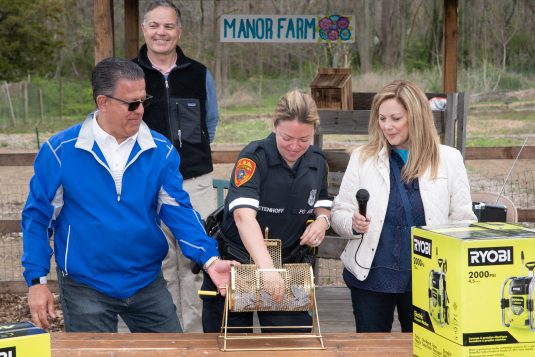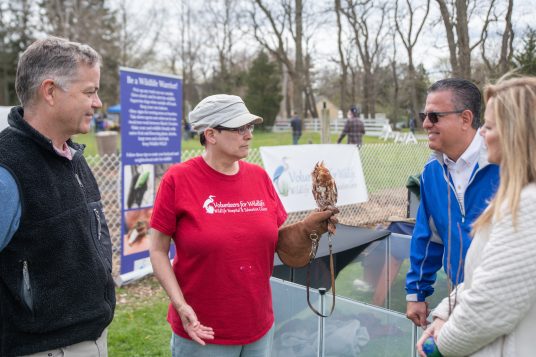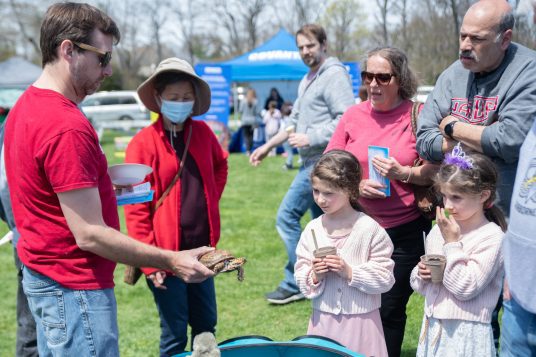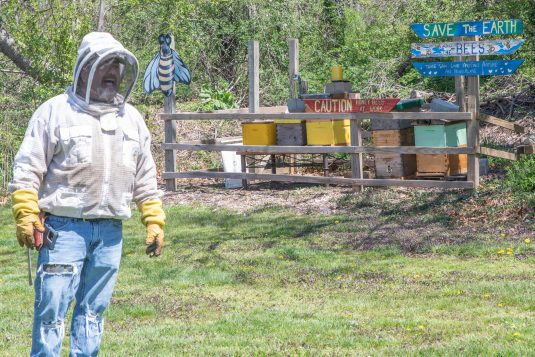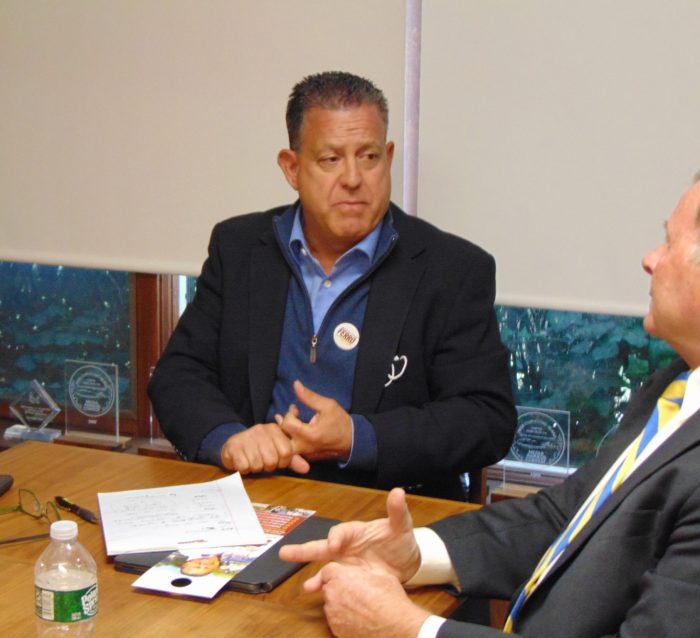Voters on the North Shore of the Town of Huntington will have the opportunity to vote for school budgets and board of education candidates Tuesday, May 17.
Below is a summary of the budgets and BOE races in the Huntington, Harborfields, Elwood and Cold Spring Harbor school districts.
For information on the Commack school district, see page A4. For the Northport school district, see the May 5 edition of The Times of Huntington & Northport or visit tbrnewsmedia.com and search for the article “Northport BOE budget vote, trustee elections set for May 17.”
Huntington Union Free School District
Budget
Those in the Huntington school district will be voting on a school budget that includes no increase in the tax levy.
The proposed budget of $142,968,343 will be an increase of 2.62% over the current spending plan. However, it will not raise the tax levy if approved by residents. According to the district’s website, the lack of an increase to the tax levy is due to a $4,087,007 increase in state aid to $26,253,748, low debt and the district lessening expenditures.
Residents will also be asked to vote “yes” or “no” on a proposition to authorize the expenditure of $6.6 million from building improvement capital reserves. The district aims to complete various projects, including electrical work at two primary schools as well as three gas/carbon monoxide detectors at three primary schools. Funds would also be used to renovate the parking lot and replace tiles at Finley Middle School. A second field is also planned for the high school to be used for sports such as soccer, lacrosse, field hockey and football, and it would also be used for physical education classes and marching band rehearsals.
Candidate information
Trustees Bill Dwyer and Michele Kustera will be running again for three-year terms and will run unopposed.
An account executive for an educational technology company, Dwyer works with school districts throughout the Northeast. He was elected to the board of ed for the first time in 2008. After his first term, he left the board for two years, and then was reelected in 2013, 2016 and 2019.
Kustera is running for her second term. She has been involved in the district on the long-range planning and food allergy committees and as a member of the district’s PTA organizations.
Voting information
Residents of Huntington school district can vote from 6 a.m. to 9 p.m. on May 17 at Huntington High School lobby.
Harborfields Central School District
Budget
Residents in the Harborfields school district will vote on a $92,895,995 proposed budget for the 2022-23 school year. The amount is $2,579,731 more than the 2021-22 budget of $90,316,264, which comes to a 2.86% increase. The budget is within the district’s allowed tax levy increase of 2.28%.
Candidate information
Current trustees Hansen Lee and Colleen Wolcott and newcomer David Balistreri will be vying for two at-large seats.
Lee has spent nine years on the board and is a director at Enzo Biochem where he oversees laboratory operations. On his profile in the district’s meet the candidates page, Lee listed “creating an inclusive and welcoming community” as being important to him.
“I currently serve on the Town of Huntington’s Asian American Task Force and was also fortunate enough to be a part of the recognition of the two Muslim holy days as official school holidays, the first district in Suffolk County to do so,” he said.
Wolcott has been a board member since 2016, and she is a case manager with the not-for–profit Angela’s House and owner/graphic designer at Gold Coast Impressions, Centerport.
Wolcott’s past experiences include working as a special education teacher with a dual certification in early education and special education up to age 21. In her candidate profile, she said, “Today’s students need more.”
“Success is no longer solely defined by strong academic achievement, but by life skills learned in a well-rounded, diverse atmosphere with a focus on mental wellness, enriched academics, the arts, elective and athletic opportunities,” she said. “It’s not enough to keep Harborfields among the best academic school districts on Long Island. We must prepare all of our children for life after school and in our competitive world.”
Balistreri works in the financial industry, in his candidate profile he said he is a concerned father who is running for various reasons. He is looking for more fiscal responsibility in the district.
He aims to “improve communication between the board and stakeholders.” Balistreri also listed working “with other school boards to stand up against Albany’s unconstitutional and nonsensical edicts.” In his profile, he said “parents are the best advocates for their children.”
Voting information
Voting will be held at Oldfield Middle School on May 17 from 2 to 9 p.m.
Elwood Union Free School District
Budget
Elwood school district’s proposed budget is $69,181,071. The dollar amount reflects a $2,267,492 increase and 3.39% increase over the previous budget of $66,913,579.
The proposed budget represents a tax levy increase of 2.9% which is under the district’s allowable tax levy of 3.4%.
Candidate information
Incumbent Deborah Weiss is being challenged for her seat by Sean Camas. There is only one three-year term up for grabs.
In his profile for the Elwood Septa meet the candidates event, Camas is listed as a local student “who wishes to bring a new youthful dynamic” to the board. The lifelong resident of Elwood served as a student council vice president when he was in middle school. He has worked part-time as a dishwasher while maintaining a 3.8 GPA and achieving cum laude honors for three years in a row. In the fall, he will attend SUNY Old Westbury and major in political science.
Weiss has served on the board of ed since 2016. In her candidate profile, she said in order to ensure educational equity for all students “while being fiscally accountable” to taxpayers the board must “streamline expenses whenever possible.”
“The last place cuts should be made and felt is in the classroom,” she wrote. “We must continue to provide an exceptional education while pursuing real legislative relief to address the state’s unfunded mandates and restrictions on district finances. I will work hard to ensure that all our budget decisions remain student focused and fiscally responsible.”
Voting information
Voting will take place May 17 from 6 a.m. to 9 p.m. at Elwood Middle School cafeteria.
Cold Spring Harbor Central School District
Budget
Cold Spring Harbor school district is asking residents to vote on a $73,420,423 proposed budget for the 2022-23 academic year. This is a $1,403,005 change from the 2021-22 budget of $72,017,418. The proposed budget reflects a 1.64% tax levy which is below the cap.
Candidate information
Voters will choose among three candidates, incumbent and current president Amelia Walsh Brogan, Alex Whelehan and Bruce Sullivan, for two at-large board of education positions. Incumbent Julie Starrett is not seeking reelection.
Voting information
Voting will take place May 17 from 6 a.m. to 9 p.m. at Ralph Whitney Field House of Cold Spring Harbor Jr./Sr. High School.




































































